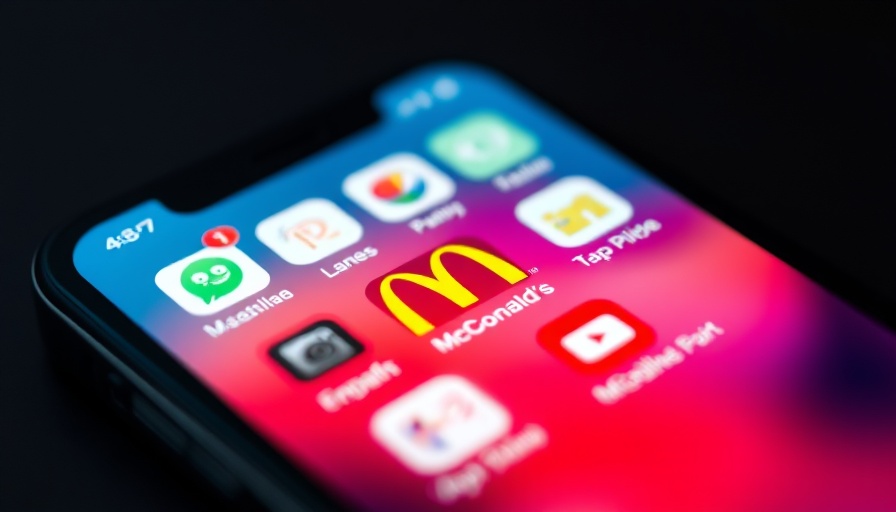
How a Quest for Free Nuggets Unmasked Major Security Flaws
In an unexpected twist, a security researcher, known as "BobDaHacker", inadvertently turned a simple desire for free McNuggets into a journey that exposed significant weaknesses in McDonald's online security system. During his attempt to redeem rewards through the fast-food giant's app, Bob uncovered vulnerabilities that could compromise sensitive information.
The Security Breach: Deeper Flaws Unearthed
The primary concern arose from Bob discovering that a seemingly innocent URL change from "login" to "register" granted him full access to the "Feel-Good Design Hub." This platform serves as a repository for vital marketing assets used across McDonald's operations in over 120 countries. The implications of such a breach are alarming, particularly as it raises questions about how well McDonald's protects not just customer rewards, but potentially sensitive employee and corporate data.
Why Transparency Matters in Security Reporting
Bob's experience didn't just highlight security flaws; it underscored a troubling lack of communication from McDonald's regarding security vulnerability disclosures. Previously, McDonald's provided a "security.txt" file for researchers to report bugs, but it mysteriously disappeared, making it challenging for individuals like Bob to reach the right channels for reporting critical issues.
This absence of a clear communication path raises concerns about how many other potential vulnerabilities might go undetected or unreported. Bob had to resort to contacting employees through LinkedIn, a tedious process that many researchers might find discouraging. Without a simple way to disclose security issues, the likelihood of serious flaws slipping under the radar increases dramatically.
Basic Security Oversights: Plain Text Passwords
Once Bob gained access, he encountered a blatant oversight: the system sent new users their passwords in plain text via email, an archaic practice that exposes individuals to significant risks of identity theft and data misuse. Such fundamental security failures question McDonald's prioritization of safeguarding customer and employee data.
The Bigger Picture: Impact on Brand Trust and Consumer Confidence
The implications of these security missteps extend beyond technical flaws. For a major player like McDonald's, maintaining consumer trust is paramount. Customers expect their personal data to be safeguarded when using mobile applications and engaging with a globally recognized brand. Repeated failures can lead to a loss of confidence and, ultimately, a decline in business.
Actionable Insights: Enhancing Security Protocols
For companies operating at McDonald's scale, bolstering security protocols is not only a technological challenge but also a business imperative. Organizations must prioritize accessible pathways for vulnerability reporting, employ industry-standard security measures, and invest in regular internal audits to identify and mitigate risks before they become exploited.
Furthermore, educating employees about security best practices, from password management to recognizing phishing attempts, is essential—especially in an era where cyber threats are ever-evolving.
Conclusion: A Call for Vigilance and Adaptation
BobDaHacker's exploration serves as a crucial reminder of the importance of cybersecurity in today's digital age. As businesses continue to integrate technology into their operations, the need for robust security measures will only grow. For consumers, this incident highlights the necessity of scrutinizing how their personal data is handled and urging companies to commit to transparent and accountable security practices.
As we learn from Bob's case, vigilance and proactive measures are essential in safeguarding our digital landscape. If they fail to adapt, the consequences of these oversights could extend far beyond free nuggets.
 Add Row
Add Row  Add
Add 




Write A Comment